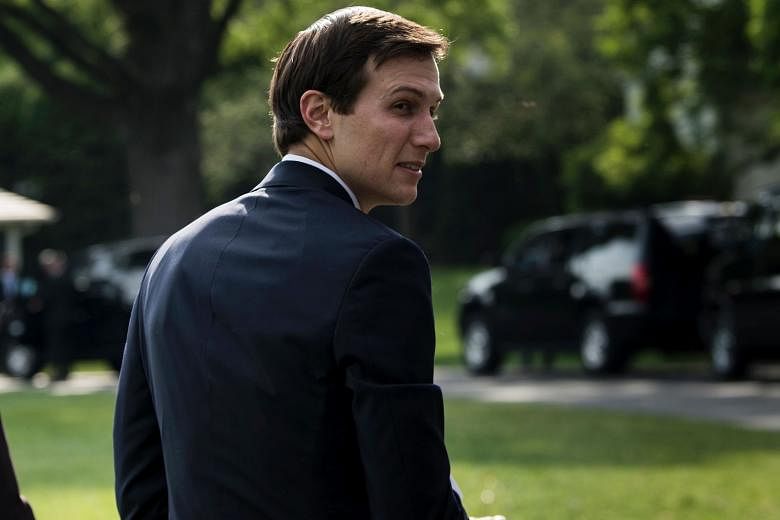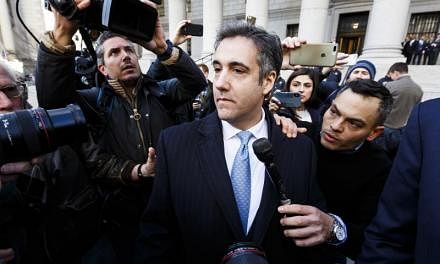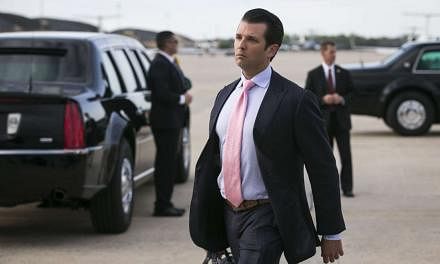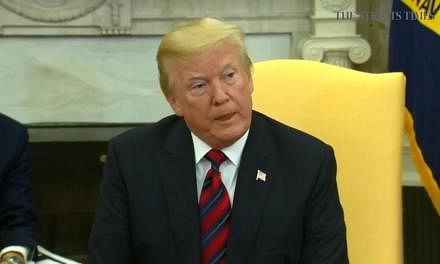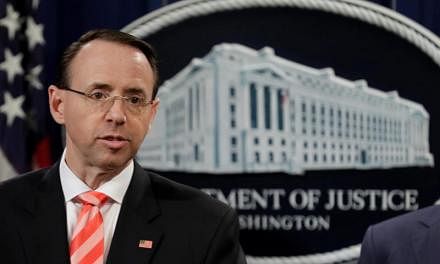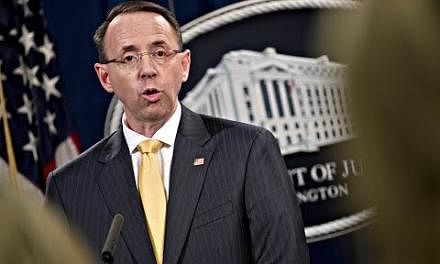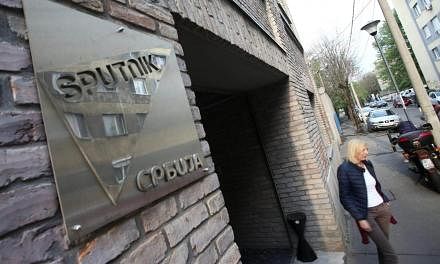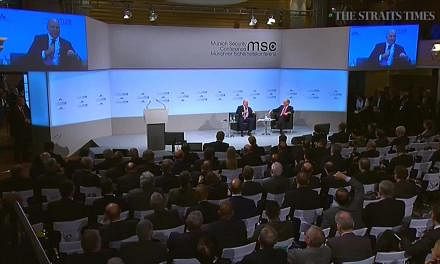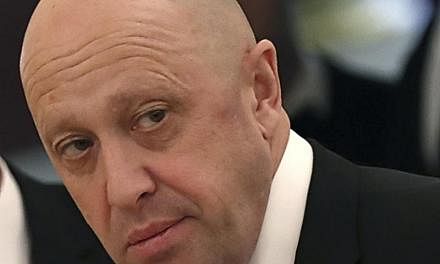WASHINGTON • Mr Jared Kushner and Russia's ambassador to Washington discussed setting up a secret and secure communications channel between Mr Donald Trump's transition team and the Kremlin, using Russian diplomatic facilities in an apparent move to shield their pre-inauguration discussions from monitoring, according to US officials briefed on intelligence reports.
Ambassador Sergey Kislyak reported to his Moscow superiors that Mr Kushner, son-in-law and confidant to then President-elect Trump, made the proposal during a meeting on Dec 1 or 2 at Trump Tower, according to intercepts of Russian communications reviewed by US officials. Mr Kislyak said Mr Kushner suggested using Russian diplomatic facilities in the US for communications.
The meeting was also attended by Mr Michael Flynn, Mr Trump's first national security adviser. The White House disclosed the meeting only in March, playing down its significance.
But people familiar with the matter say the Federal Bureau of Investigation (FBI) now considers the encounter, and another meeting Mr Kushner had with a Russian banker, to be of investigative interest.
Mr Kislyak reportedly was taken aback by the suggestion of allowing an American to use Russian communications gear at its embassy or consulate - a proposal that would have carried security risks for Moscow and the Trump team. Neither the meeting nor the communications of Americans involved were under US surveillance, officials said. The White House and Mr Flynn's lawyer Robert Kelner declined to comment. The Russian Embassy did not respond to requests for comment.
Russia at times feeds false information into communication streams it suspects are monitored to sow misinformation and confusion among US analysts. But officials said it is unclear what Mr Kislyak had to gain by falsely characterising his contacts with Mr Kushner to Moscow, particularly at a time when the Kremlin saw the prospect of dramatically improved relations with Mr Trump.
Mr Kushner's apparent interest in establishing a secret channel with Moscow, rather than relying on US government systems, has added to the intrigue surrounding the Trump administration's relationship with Russia.
The discussion of a secret channel adds to a broader pattern of efforts by Mr Trump's closest advisers to obscure their contacts with Russian counterparts. Mr Flynn was forced to resign after a series of false statements about his conversations with Mr Kislyak. Attorney-General Jeff Sessions recused himself from matters related to the Russia investigation after it was revealed that he had failed to disclose his own meetings with Mr Kislyak when asked during congressional testimony about any contact with Russians. Mr Kushner's interactions with Russians were not acknowledged by the White House until they were exposed in media reports.
Meanwhile, congressional officials say a Russian oligarch who was once close to Mr Trump's former campaign manager Paul Manafort has offered to cooperate with congressional committees investigating Russian meddling in the 2016 US presidential election, but lawmakers are unwilling to accept his conditions.
The offer by Mr Oleg Deripaska comes amid increased attention to his ties to Mr Manafort, who is one of several Trump associates under FBI scrutiny for possible collusion with Russia during the campaign.
Mr Deripaska, an aluminium magnate who is a member of the inner circle of Russian President Vladimir Putin, recently offered to cooperate with congressional intelligence committees in exchange for a grant of full immunity, according to three congressional officials, speaking on the condition of anonymity because they were not authorised to discuss the issue publicly.
But the Senate and House panels turned him down because of concerns that immunity agreements create complications for federal criminal investigators, the officials said.
WASHINGTON POST, NEW YORK TIMES
